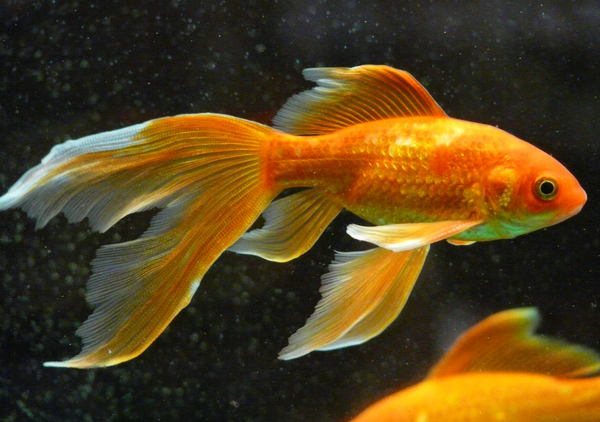Turtles ARE NOT Tortoises!
A very common misconception is labeling tortoises as turtles, and vice versa. So what is the difference?
| Tortoise | Turtle | |
| Area | Dwells well on land | Dwells well in water |
| Shell | Mostly large dome shaped shells | Mostly flat, streamlines shells |
| Limbs | Feet are short and sturdy with bent legs | Webbed feet & long claws |
| Lifespan | Lives 50-100+ years | Lives 20-40 years |
| Diet | Mostly herbivore, some prefer live food | Omnivores |
Know Your Species
Not all tortoises are the same. Before making any plans to purchase a tortoise, it is very important to know exactly what species you are interested in caring for. Changes in basic set-up and care can be minuscule or drastic, depending on the species. For example, a forest species like a Red-foot tortoise will stay smaller than a rainforest Red-foot tortoise, but requires higher relative humidity. Tortoises commonly available at pet stores typically come in as young juveniles and are roughly the same size, it is important to do research or ask staff about the different species available and what works best for you.
Lifetime Friend
It should come as no surprise, tortoises can live a very VERY long time if properly kept in captivity. Understand that if you are buying a tortoise for your child, he/she will likely have this pet until they are in their 50's or 60's! Yes, tortoises make amazing pets and are very friendly and fun to keep, as long as you understand the longevity of their lifespan. Below is a chart showing the average lifespan of tortoises available in the pet trade.
| Species | Average Lifespan |
| Hermann's Tortoise | 60 - 80 Years (Oldest recorded is 110 years) |
| Red-Footed Tortoise | 50 - 60 Years |
| Yellow-Footed Tortoise | 60 - 70 Years |
| Sulcata Tortoise | 70 - 100 Years |
| Russian Tortoise | 40 - 60 years |
Enclosure Size
 Even for a small tortoise, you need to be prepared to have some extra space available! For smaller tortoises (Hermann's & Egyptian), a 2 foot by 5 foot footprint is enough to house 1 adult. Tortoises are not really climbers, so height is not very important. A "tortoise table" is perfect for keeping small species inside, and is essentially a storage cabinet or dresser laid on its back and turned into an enclosure. Medium size tortoises (Red & Yellow Footed) will require an open-top pen measuring at least 6 feet by 4 feet. A Sulcata tortoise will require as much room as you can give them, we recommend a 20'x20' room.
Even for a small tortoise, you need to be prepared to have some extra space available! For smaller tortoises (Hermann's & Egyptian), a 2 foot by 5 foot footprint is enough to house 1 adult. Tortoises are not really climbers, so height is not very important. A "tortoise table" is perfect for keeping small species inside, and is essentially a storage cabinet or dresser laid on its back and turned into an enclosure. Medium size tortoises (Red & Yellow Footed) will require an open-top pen measuring at least 6 feet by 4 feet. A Sulcata tortoise will require as much room as you can give them, we recommend a 20'x20' room.
Tortoise Diet
Feed a daily diet of 85% fibrous vegetables, 10% fruits and 5% protein. Protein can consist of earthworms, mealworms, crickets, etc. Zoo Med Tortoise Flower Toppers are an excellent way too add color and keep your tortoises interested in their food. Protein is an important part of a young tortoise’s diet but it is equally important not to feed too much protein. Too much protein in the tortoise’s diet can lead to malnutrition, stunted growth, improper shell growth and can lead to the death of the tortoise. Calcium is a very important part of a tortoise's diet. Make certain to add a calcium supplement to each feeding. In addition, powdered supplements can be sprinkled over the vegetables. Pisces recommends: Rep-Cal Herptivite Multivitamins.
UVB Lighting
All tortoises require heat and UVB lighting. Forest tortoises should be given a full spectrum 5.0 UVB bulb for 12 hours a day, while the desert species should be given 10.0 UVB. Tortoises need UVB light to properly synthesize vitamin D3, a very important part of a tortoises health. Without being able to synthesize Vitamin D3, your tortoise will not be able to metabolize the calcium supplements, and will likely to develop metabolic bone disease. Symptoms of MBD incldue:
- Limping
- Bowed legs
- Softening and unusual flexibility of the lower jaw
- Difficulty raising the body off the ground
- Decreased appetite
- Soft shell
If calcium levels in the blood become very low, depression, lethargy, twitches, tremors, hind end weakness, seizures, and death may result. UVB bulbs should be replaced every 8-12 months! Pisces recommends: Zoo Med T5 HO Reptisun bulbs.




